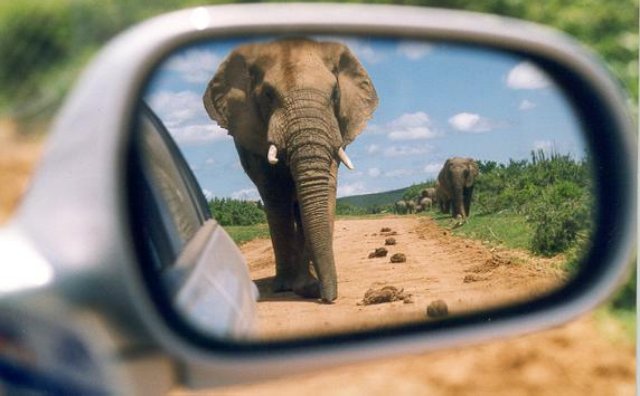
Marshall McLuhan:
The past went that-a-way. When faced with a totally new situation, we tend always to attach ourselves to the objects, to the flavor of the most recent past. We look at the present through a rear view mirror. We march backwards into the future.
People need metaphors to understand unfamiliar concepts. We tend to talk about new things using metaphors, similies and analogies. There’s nothing particularly wrong with that – in fact, it can be helpful!
David Wiley:
Say your friend buys you an Amazon or iTunes gift card for your birthday. When your friend buys the gift card, they are required to provide your email address, both so that (1) the store knows where to send the gift card and (2) the store can verify you’re you when you come to claim the gift card. After your friend completes the purchase, you receive an email containing a special code. To redeem the gift card, you go to a website, verify your identity, and enter the code. After you enter the code, a certain amount of credit appears in your account, which you can spend however you like.
I think that’s rather a useful simile for Open Badges.
What do you think?
Image CC BY exfordy

Image CC BY-NC-SA Stuck in Customs
I stumbled across this quotation from the Chinese sage Chuang-Tzu, writing 2,500 years ago, in Marshall McLuhan’s The Gutenberg Galaxy (p.29-30):
As Tzu-Gung was travelling through the regions north of the river Han, he saw an old man working in his vegetable garden. He had dug an irrigation ditch. The man would descend into the well, fetch up a vessel of water in his arms and pour it out into the ditch. While his efforts were tremendous the results appeared to be very meagre.
Tzu-Gung said, “There is a way whereby you can irrigate a hundred ditches in one day, and whereby you can do much with little effort. Would you not like to hear of it?” Then the gardener stood up, looked at him and said, “And what would that be?”
Tzu-Gung replied, “You take a wooden lever, weighted at the back and light in front. In this way you can bring up water so quickly that it just gushes out. This is called a draw-well.”
Then anger rose up in the old man’s face, and he said, “I have hear my teacher say that whoever uses machines does all his work like a machine. He who does his work like a machine grows a heart like a machine, and he who carries the heart of a machine in his breast loses his simplicity. He who has lost his simplicity becomes unsure in the strivings of his soul. Uncertainty in the strivings of the soul is something which does not agree with honest sense. It is not that I do not know of such things; I am ashamed to use them.”
Technology integration in education may seem to make sense in terms of society and the future, but is that everything? What about individual identity and the ‘spiritual’ dimension?
An open question.


